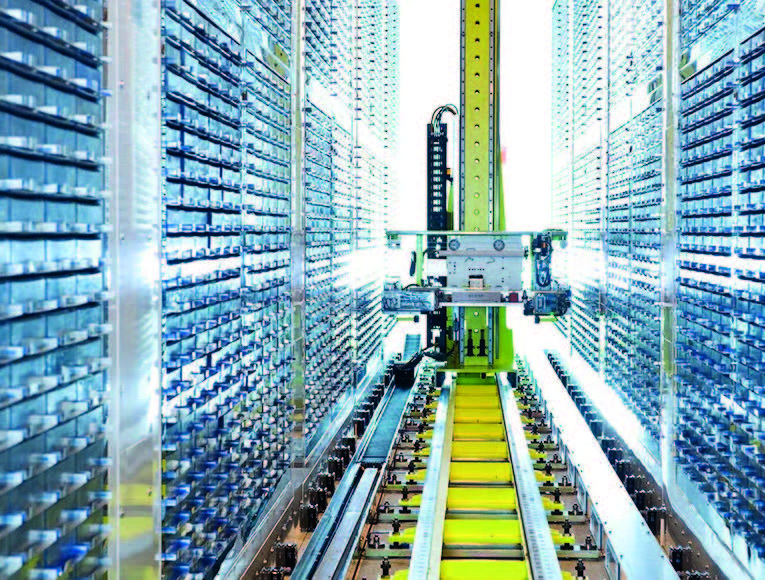FST JOURNAL
Update
British Antarctic Survey research finds sea level rise set to increase
The West Antarctic Ice Sheet will continue to increase its rate of melting over the rest of the century, no matter how much we reduce fossil fuel use, according to British Antarctic Survey (BAS) research published in the journal Nature Climate Change. A substantial acceleration in ice melting likely cannot now be avoided, which implies that Antarctica’s contribution to sea level rise could increase rapidly over the coming decades.
Scientists ran simulations on the UK’s national supercomputer to investigate ocean-driven melting of the West Antarctic Ice Sheet: how much is unavoidable and must be adapted to, and how much melting the international community still has control over through reduction of greenhouse gas emissions.
Taking into account climate variability like El Niño, they found no significant difference between mid-range emissions scenarios and the most ambitious targets of the 2015 Paris Agreement. Even under a best-case scenario of 1.5°C global temperature rise, melting will increase three times faster than during the 20th century.
The West Antarctic Ice Sheet is losing ice and is Antarctica’s largest contributor to sea-level rise. Previous modelling finds this loss could be driven by warming of the Southern Ocean, particularly the Amundsen Sea region. Collectively the West Antarctic Ice Sheet contains enough ice to raise global mean sea-level by up to five metres.
Around the world millions of people live near the coast and these communities will be greatly impacted by sea level rise.
UK launches AI safety institute
The UK’s AI Safety Institute was launched on 2 November, the second day of a global conference at Bletchley Park bringing together AI nations, organisations and experts to discuss the global future of AI and work towards a shared understanding of risks.
After four months of building a team to evaluate the risks of frontier AI models, it has been confirmed that the Frontier AI Taskforce will now become the AI Safety Institute, with Ian Hogarth continuing as its Chair. The External Advisory Board for the Taskforce, made up of industry figures from national security to computer science, will now advise the new global hub.
The Institute will test new types of frontier AI before and after they are released, in order to address potentially harmful capabilities of AI models, including exploring all the risks, from social harms like bias and misinformation, to the most unlikely but extreme risk, such as humanity losing control of AI completely. In undertaking this research, the AI Safety Institute will look to work closely with the Alan Turing Institute, the national institute for data science and AI.
Already, the UK has agreed two partnerships: with the US AI Safety Institute, and with the Government of Singapore to collaborate on AI safety testing – two of the world’s leading AI powers.
New consortium to develop UK Biobank
Former CEO and Chairman of Google Eric Schmidt, and Ken Griffin, founder and CEO of Citadel and founder of Griffin Catalyst, have been announced as the first members of a new consortium that will shape the future of the UK Biobank, starting with £16 million funding matched by Government.
Their donations will support UK Biobank to grow its wealth of health data, to enable research unlocking the next steps in the understanding of health and disease. This could include using AI’s ability to rapidly analyse large quantities of data to draw new insights from UK Biobank’s data, such as in the analysis of cancer samples.
UK Biobank aims to be the world’s most significant resource for health research, and is one of the country’s important scientific assets. It is a database of in-depth genetic, health and lifestyle information from half a million UK volunteers, giving approved researchers worldwide access to an unparalleled source of data that is enabling medical breakthroughs, from treating cardiac disease to Alzheimer’s.
The more than £16 million ($20 million) being donated by Eric Schmidt and Ken Griffin will be matched by the Government, which will provide up to £25 million in funding in total for the UK Biobank, provided that an equal amount of private and philanthropic donations is also secured. The ultimate aim is to achieve at least £50 million in contributions for UK Biobank.

Astronomer Royal wins Copley Medal
Renowned astrophysicist and cosmologist, Martin Rees, has been named this year’s recipient of the world’s oldest and most prestigious scientific award. The Royal Society’s Copley Medal, awarded for sustained, outstanding achievements in any field of science, was first awarded in 1731. Previous recipients have included Louis Pasteur, Dorothy Hodgkin, Albert Einstein, and Charles Darwin.
Lord Rees, a Fellow and former President of the Royal Society, and the UK’s current Astronomer Royal, is one of the most distinguished theoretical astrophysicists of his generation and was chosen for his many and varied conceptual breakthroughs over several decades, with influence spreading far beyond the specialist academic community.
Lord Rees is also a member of the Council of the Foundation for Science and Technology.
